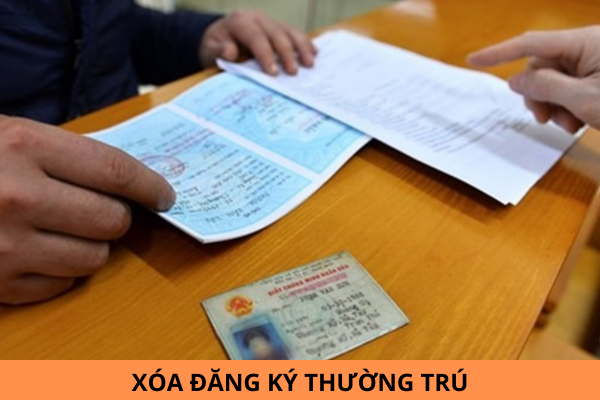In Vietnam: Is it necessary to compensate in case a neighbour's house is put on fire for short circuit?
In Vietnam: Is it necessary to compensate in case a neighbour's house is put on fire for short circuit? In Vietnam: Is short circuit leading to fire a force majeure event for compensation? What are principles of compensation for damage in Vietnam?
Two days ago, my uncle's computer was short-circuited, leading to a house fire and to the neighbor's house behind. Fortunately, the fire did not spread to the gas cylinder, and everyone in the house was away at the time. I want to ask, in this case, does my uncle have to compensate for the damage to the neighbor's house?
Thank you!
In Vietnam: Is it necessary to compensate in case a neighbour's house is put on fire for short circuit?
Pursuant to Article 601 of the Civil Code in 2015 stipulating as follows:
Compensation for damage caused by sources of extreme danger
1. Sources of extreme danger comprise motorized means of transport, power transmission systems, operating industrial plants, weapons, explosives, inflammable substances, toxic substances, radioactive substances, dangerous animals and other sources of extreme danger as provided by law.
An owner of a source of extreme danger must comply strictly with the regulations on taking care of, preserving, transporting and using sources of extreme danger in accordance with law.
2. An owner of a source of extreme danger must compensate for damage caused by such source. If the owner has transferred possession or use of the source of extreme danger to another person, such other person must compensate [for the damage], unless otherwise agreed.
3. An owner, or person to which an owner has transferred the possession or use, of a source of extreme danger must compensate for damage caused by such source, even where such owner or person is not at fault, except in either of the following cases:
a) The aggrieved person is entirely at fault for intentionally causing the damage;
b) The damage occurred due to an event of force majeure or in an emergency situation, unless otherwise provided by law.
4. Where a source of extreme danger is taken into possession or used unlawfully, the person possessing or using [it] unlawfully must compensate for damage.
Where an owner, or a person to which an owner has transferred possession or use, of a source of extreme danger is at fault by allowing the unlawful possession or use of the source of extreme danger, the owner, or the person to which the owner has transferred possession or use, of the source of extreme danger as the case may be must compensate jointly for the damage.
With the information you provide, if your uncle's computer is short-circuited, it can be determined that this is a damage caused by a highly dangerous source. Accordingly, your uncle will have to compensate for the damage to the neighbor's house in this case. Except for the following cases:
- The aggrieved person is entirely at fault for intentionally causing the damage;
- The damage occurred due to an event of force majeure or in an emergency situation, unless otherwise provided by law.
In Vietnam: Is short circuit leading to fire a force majeure event for compensation?
Pursuant to Article 156 of the Civil Code in 2015 stipulating as follows:
Time periods excluded from prescriptive periods for initiating legal action for civil cases and from prescriptive periods for requesting resolution of civil cases
The time period during which one of the following events occurs shall be excluded from prescriptive periods for initiating legal action for civil cases and from prescriptive periods for requesting resolution of civil cases:
1. An event of force majeure or other objective hindrance which renders the person with the right to initiate legal action for a civil case or make the request not able to do so within the prescriptive period.
An event of force majeure is an event which occurs in an objective manner which is not able to be foreseen and which is not able to be remedied by all possible necessary and admissible measures being taken.
An objective hindrance is a hindrance which in an objective context results in a person with civil rights or obligations not knowing that his or her lawful rights and interests have been infringed or not being able to exercise his or her rights or fulfill his or her civil obligations;
2. The person with the right to initiate legal action for a civil case or to make the request is a minor or a legally incapacitated person, a person with limited cognition and behavior control or a person with limited legal capacity, and does not yet have a representative.
3. The representative of a minor or a legally incapacitated person, a person with limited cognition and behavior control or a person with limited legal capacity has not yet been replaced in any of the following cases:
a) The representative being natural person dies or the representative being juridical person ceases to exist;
b) The representative, for good reasons, cannot continue his/her representation.
With this issue, it is necessary to clarify what a force majeure event is, as the above regulations explain that a force majeure event is an event that occurs objectively, which cannot be foreseen and cannot be remedied. notwithstanding all necessary and permissible measures have been taken.
Individuals and organizations need to be responsible for the management and use of computers, which are prone to fire and explosion, need to have preventive measures, ensure safety, and timely plans and means. to avoid an unfortunate situation.
Thus, in the case of your uncle, considering that in this case, the short-circuiting of the desktop computer is not considered a force majeure event, so your uncle still has to make compensation for the damage to the neighbor's house.
What are principles of compensation for damage in Vietnam?
Pursuant to Article 585 of the Civil Code in 2015 stipulating principles of compensation for damage in Vietnam as follows:
- Actual damage must be compensated in full and promptly. Unless otherwise provided by law, parties may agree on the amount of compensation; on the form of compensation, which may be money, in kind or the performance of an act; lump sum payment or payment in instalments; and on the method of compensation.
- The compensation payable by a person having caused damage may be reduced if such damage was caused unintentionally and is very large in comparison to the financial positions of such person.
- If the amount of compensation determined becomes unrealistic, the aggrieved person, or the person having caused damage, has the right to request a court or another competent authority to change the amount of compensation.
- If the aggrieved party is partly his/her fault for causing the damage, that part of damage shall not be compensated.
- The party having rights and interests infringed shall not be compensated if such damage incurs due to his/her failure to adopt necessary measures to prevent the damage.
Above are principles of compensation for damage in Vietnam.
Best regards!











